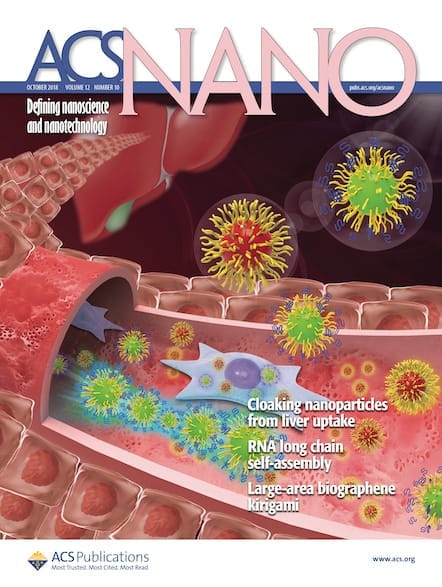The gold-standard therapy for rheumatoid arthritis, methotrexate (MTX), doesn’t help everyone with the condition. When delivered systemically, through pills or injections, it can gradually become less effective and cause side effects. According to a new study, albumin nanoparticles might help to target MTX directly to inflamed joints, dramatically improving the drug’s efficacy and reducing potential […]

The gold-standard therapy for rheumatoid arthritis, methotrexate (MTX), doesn’t help everyone with the condition. When delivered systemically, through pills or injections, it can gradually become less effective and cause side effects. According to a new study, albumin nanoparticles might help to target MTX directly to inflamed joints, dramatically improving the drug’s efficacy and reducing potential side effects. MTX delivered in the nanoparticles accumulates in the inflamed joints of a mouse model of rheumatoid arthritis, and the therapy is twice as potent as a shot of the drug in its unaltered state.
Massimo Bottini of the University of Rome Tor Vergata, Weisheng Guo of Guangzhou Medical University, Xing-Jie Liang of the Chinese Academy of Sciences, and colleagues found that levels of a glycoprotein called SPARC (secreted protein acidic and rich in cysteine) were elevated in the joints of both humans and mice with rheumatoid arthritis. SPARC binds to albumin, a transporter protein found in human blood serum, so the researchers suspected that using albumin to deliver MTX could target joints selectively. Albumin has hydrophobic pockets that can interact with molecules such as MTX. When the researchers combined MTX and albumin, those hydrophobic interactions helped to drive the self-assembly of the drug and protein into nanoparticles 30 nm in diameter.
Albumin-delivered MTX given at half the standard dose was effective at reducing inflammation in the mice and also caused fewer side effects. For example, although free MTX caused some damage in the animals’ kidney and liver, the albumin-bound MTX did not. Inflammatory cells consume an especially high level of nutrients due to their elevated activity. The researchers speculate that inflamed joints attract albumin from the blood stream because it can be metabolized for its protein content. Next, Bottini and his colleagues plan to test the nanoparticles with other rheumatoid arthritis drugs in mice.
